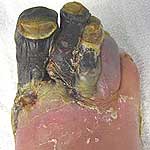The Hamamelidae is one of the most important families in the Plant Kingdom and yet often not well known. Including diverse remedies such as Birch, Beech, Walnut, Oak, Elm, Witch Hazel, Stinging Nettle and Hemp (Cannabis sativa).
Daylight saving time ended in US
Daylight Saving Time (United States) began Sunday, March 11, 2012, 2:00am, and ended Sunday, November 4, 2012, 2:00am. Daylight saving time (DST) — also summer time in several countries in … continue reading



